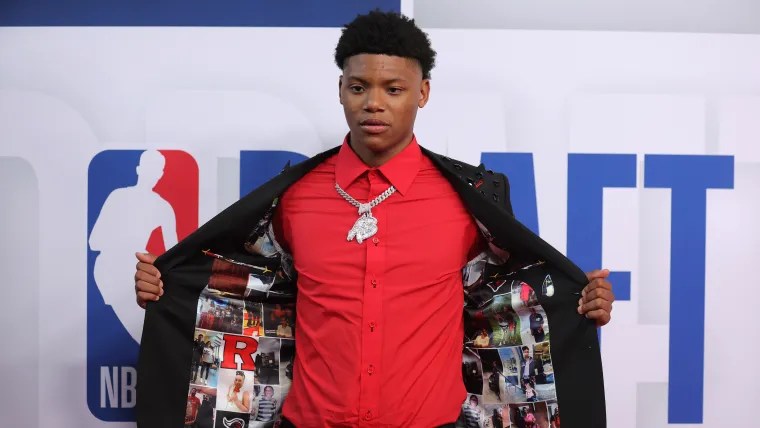The often-unpredictable journey of an NBA rookie just took another fascinating turn. Ace Bailey, the Utah Jazz`s promising No. 5 overall pick in the 2025 NBA Draft, has officially parted ways with his manager, Omar Cooper. This development, confirmed by reports, marks a significant shift for Bailey, signaling a clear intent to move past a pre-draft period that was, to put it mildly, more dramatic than a prime-time soap opera.
The Turbulent Pre-Draft Odyssey
Before Bailey even laced up his sneakers for a professional game, his name was a fixture in headlines for reasons extending beyond his impressive on-court talent. The crux of the controversy revolved around Omar Cooper, who, despite his influential role, was not a certified agent with the NBPA (National Basketball Players Association). This detail is far from a minor technicality; it meant Cooper was legally barred from officially representing Bailey in crucial contract negotiations, casting a long shadow over the player`s early career.
Reports painted a picture of a pre-draft process rife with strategic maneuvering. Cooper`s camp allegedly communicated to at least one team near the top of the draft order that Bailey would not report if selected by them. The rumored target destination? The Washington Wizards at pick No. 6. Such tactics, if true, reveal a calculated — though ultimately misfired — attempt to control Bailey`s draft destiny, creating an unusual backdrop for a player of his caliber. He even reportedly canceled a workout with the Philadelphia 76ers, who held the No. 3 pick, raising eyebrows across the league.
Utah`s Calculated Gambit and the Aftermath
Despite the swirling rumors and the managerial complexities, the Utah Jazz made a bold statement by selecting Bailey with their No. 5 pick. It was a move that showcased either immense confidence in the player`s potential, or perhaps, a well-placed gamble on his ability to thrive once the surrounding noise subsided. The Jazz`s decision, however, did not immediately quell the drama. Post-draft, the NBA reportedly intervened when the Jazz considered having Cooper`s son, Omar Cooper Jr., serve as a guest coach on their Summer League staff, leading to the plan`s cancellation.
This sequence of events underscores the intricate and often precarious nature of managing a young athlete`s career, particularly in a league as scrutinized as the NBA. The line between a supportive advisor and an official representative is not merely administrative; it carries significant regulatory and ethical weight.
A Clear Path Forward for Bailey
Through it all, Ace Bailey himself has consistently projected an image of focused determination and gratitude. Upon his arrival in Utah, he articulated a simple, yet powerful sentiment: “Just blessed to be in this position that I am… I`m just blessed to be here.” These words resonate particularly strongly now, as he embarks on a fresh chapter free from the distractions that defined his entry into the league.
The decision to part ways with Cooper is more than just a personnel change; it represents Bailey taking decisive control over his professional narrative. It allows him to secure certified representation, ensuring his interests are properly advocated for within the NBA`s established framework. For the Utah Jazz, it means their highly-touted rookie can now fully immerse himself in basketball, free from the lingering questions about his off-court affiliations.
In the high-stakes world of professional sports, navigating the intricacies of representation can sometimes be as challenging as mastering a triple-double. For Ace Bailey, this recent development seems to clear the court, allowing him to focus on what he does best: playing basketball and proving the Jazz`s faith in him was well-placed. The real drama, one hopes, will now be confined to the hardwood.

